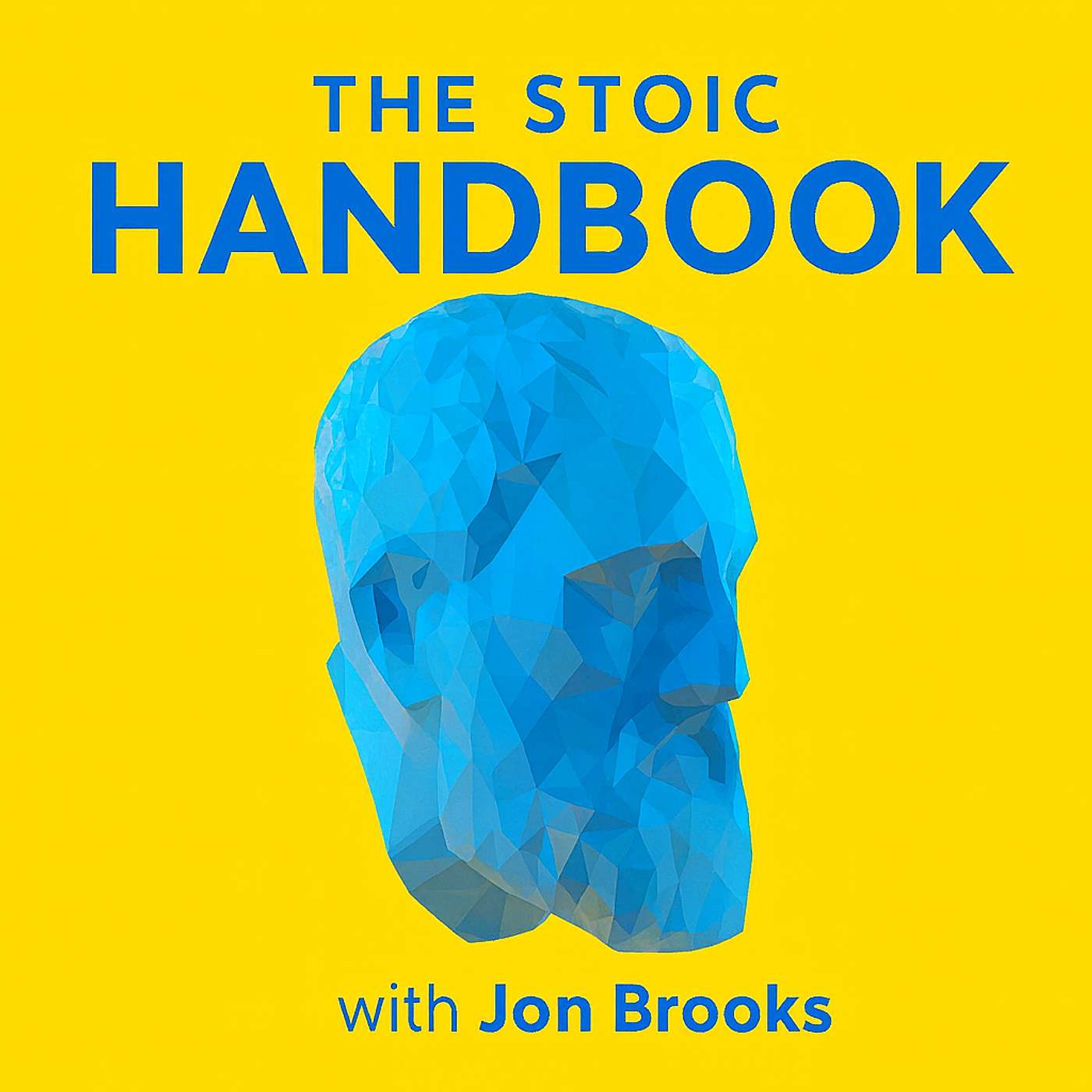

The Stoic Handbook with Jon Brooks
Jon Brooks
Modern practical breakdowns of the best ideas in ancient Stoicism. New episodes every Monday.
Episodes
Mentioned books

Dec 13, 2022 • 14min
The Marcus Aurelius Morning Meditation That Prepared His Mind for Adversity
Learn Marcus Aurelius' technique of premeditating adversity to cultivate calmness and tolerance. Explore his virtuous reign and ability to remain just despite constant betrayal. Discover the power of premeditation of adversity and realistic optimism. Benefit from practicing premeditation according to Stoic philosophy. Find strength in adverse situations by letting go of distress and focusing on the present moment.

Nov 29, 2022 • 11min
2 Types of Desires That Always Cause Disappointment
The podcast explores the concept of impossible desires and slave desires, highlighting the importance of accepting life's imperfections and embracing personal power. It discusses the negative consequences of desires for control and external validation, and provides tips for modifying desires to maintain personal power and avoid disappointment.

4 snips
Nov 13, 2022 • 29min
The Stoic Insult Roadmap: Never Be Socially Harmed Again
Send us a textStoic Handbook PremiumGet instant access to my meditation courses, exclusive lessons, AMAs, and masterclasses, all ad-free. It's easy! Sign up in two taps!Get your 7-day free trial: https://stoichandbook.supercast.com/Thank you so much for listening!

23 snips
Nov 2, 2022 • 39min
3 Pillars of Skilful Communication That Will Transform Your Relationships
Send us a textIn this talk, I cover what I consider to be the three pillars of skillful communication. These pillars cover poor communication habits, how to simply express yourself well in all circumstances, and the model I use to manage conflict.

Oct 20, 2022 • 18min
Complete Stoic Loving-Kindness Meditation
Discover how Stoics valued compassion and learn how to develop self-compassion through stoic lovingkindness meditation. Explore Marcus Aurelius' wisdom on showing love and compassion towards others, even difficult people. Gain insights into viewing the behavior of difficult individuals with compassion and recognizing the interconnectedness of humans for achieving happiness.

Oct 17, 2022 • 4min
Can Stoic "Positive Reframing" Go Too Far w/ Donald Roberson
Send us a textReframing negative events to make them appear more positive and useful is a classic Stoic technique. But can it ever go too far? Is it dangerous to reframe everything into something positive? Stoic writer Donald Robertson answers. Donald's website: https://donaldrobertson.name/Donald's Twitter: https://twitter.com/DonJRobertson

Sep 22, 2022 • 12min
Stoic Gratitude Training: See the Magic of Reality to Find Awe in the Ordinary
Gratitude and appreciation are key to happiness; the podcast explores the magic and beauty in ordinary life; reflection on the improbable existence of humans and gratitude towards ancestors; appreciation for the intricate chain of events that led to our existence and the need for radical gratitude.

Sep 12, 2022 • 44min
The Path of Stoic Anxiety Mastery
Exploring stoicism for anxiety management, understanding the difference between anxiety and fear, effectiveness of stoicism in dealing with anxiety, personal journey of overcoming anxiety, adopting an anti-victim mentality, investigating our relationship with anxiety

Sep 8, 2022 • 7min
What Did Stoics Think About Exercise? w/ Donald Robertson
Send us a textIn this episode, I speak to the legendary Stoic writer Donald Robertson and ask him about the Stoic view on exercise. More from Donald: https://donaldrobertson.name/

Sep 1, 2022 • 7min
Trying to Appear Wise is Unwise
Send us a textMany of us are interested in philosophy and self-improvement not to become wise, but for the reputation of being wise. Epictetus saw that this pattern of behavior is very counter-productive if one wishes to acquire true wisdom.“If you want to make progress, put up with being perceived as ignorant or naive in worldly matters, don’t aspire to a reputation for sagacity. If you do impress others as somebody, don’t altogether believe it. You have to realize, it isn’t easy to keep your will in agreement with nature, as well as externals. Caring about the one inevitably means you are going to shortchange the other.”After listening to this episode, read the breakdown here: https://www.stoichandbook.co/do-not-wish-to-appear-wise/


